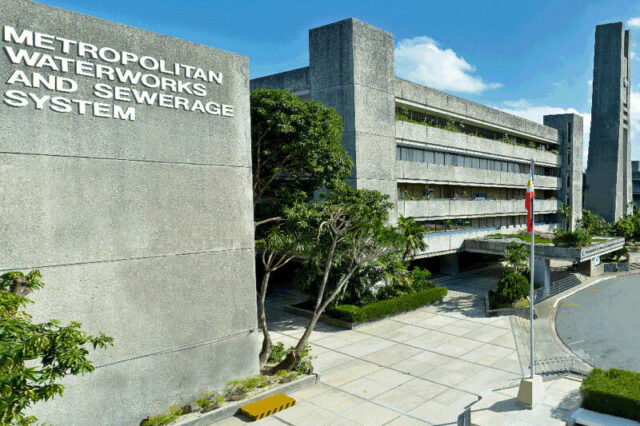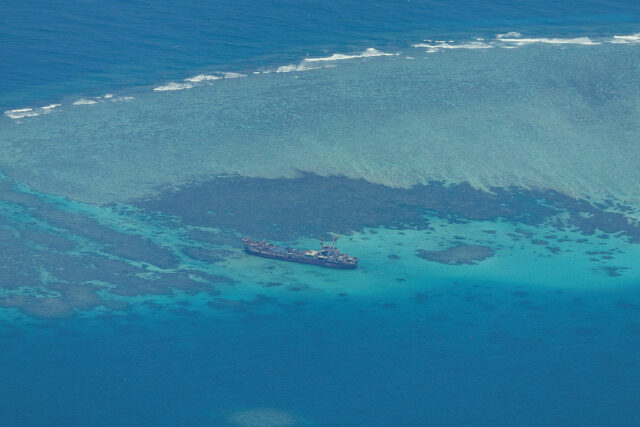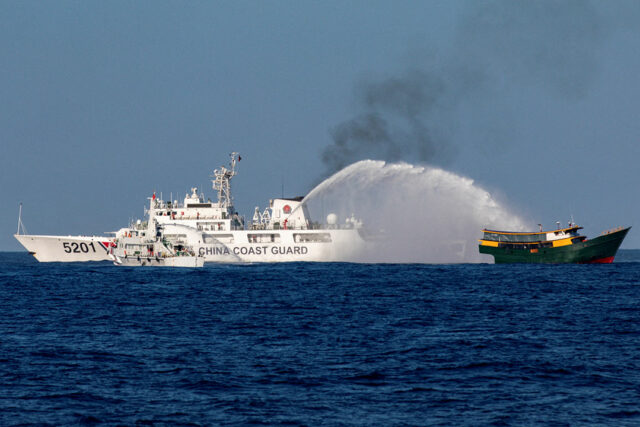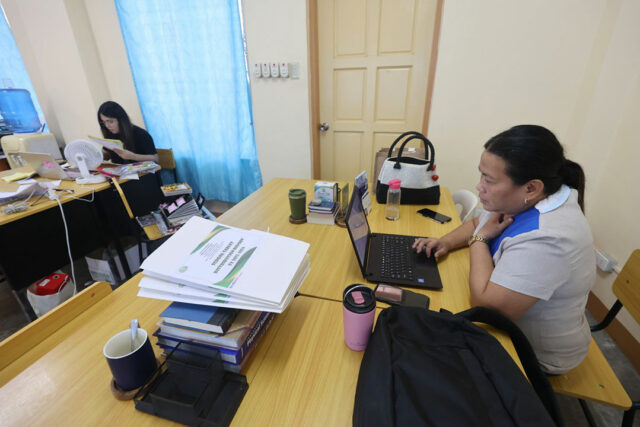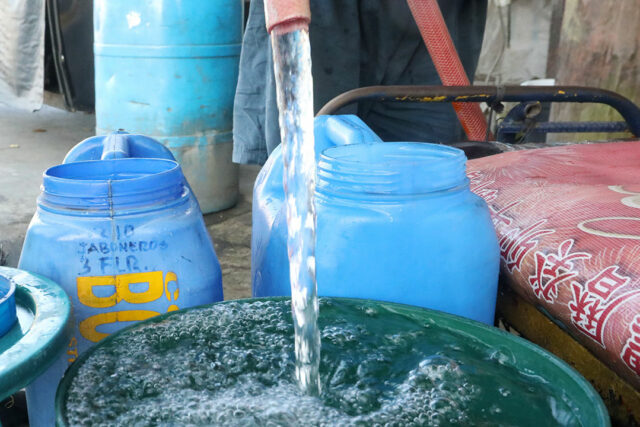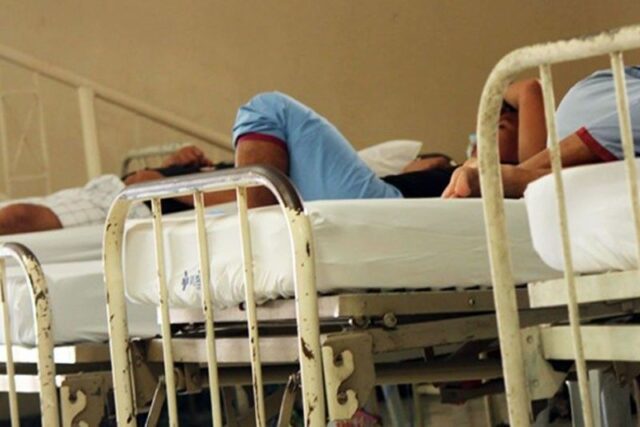By Kyle Aristophere T. Atienza, Reporter
THE PHILIPPINES on Tuesday said its national security adviser and his US counterpart discussed by telephone “coercive, aggressive and deceptive actions” by Beijing in the South China Sea, as a diplomatic row intensifies between the two Asian neighbors.
National Security Adviser Eduardo Año “expressed his appreciation for the United States’ continued assurances and reaffirmation of its ironclad commitment” to their alliance, the Philippines’ National Security Council (NSC) said in a statement.
In a statement posted on its website, the White House said National Security Adviser Jake Sullivan and Mr. Año discussed preparations for the visit of Philippine President Ferdinand R. Marcos, Jr. to the White House and the historic Japan-Philippines-US trilateral leaders’ summit this month.
“Mr. Sullivan also emphasized US support for the Philippines following the People’s Republic of China Coast Guard and maritime militia’s dangerous actions on March 23 obstructing a lawful Philippine resupply mission to Second Thomas Shoal,” it said.
“Mr. Sullivan underscored the ironclad US alliance commitments to the Philippines under the US-Philippines Mutual Defense Treaty, which extends to armed attacks on Philippine Armed Forces, public vessels or aircraft — to include those of its coast guard — anywhere in the South China Sea,” it added.
The phone call on Monday was on the heels of a series of maritime run-ins and heated verbal exchanges between China and the Philippines that has triggered concern about an escalation at sea.
Meanwhile, the Philippines, US, Australia and Japan are planning anti-submarine drills in the South China Sea on April 7, Kyodo news agency reported on Tuesday.
It would mark the first such full-fledged exercise for the navies of the four countries in those waters and is likely aimed at demonstrating solidarity with the Philippines against China’s growing assertiveness, Kyodo said, citing multiple people familiar with the matter.
President Ferdinand R. Marcos, Jr. said last week there would be “countermeasures” against aggression by China’s coast guard, while Beijing accused the Philippines of treachery and reneging on a promise to tow away an old naval vessel grounded intentionally at Second Thomas Shoal. Manila denies ever making that pledge.
Philippine Defense Secretary Gilberto Teodoro, Jr. told Filipinos to “not fall into the trap set by Chinese propaganda.”
“Let us not fall into the trap set by Chinese propaganda of refocusing the debate on a so-called promise while deflecting attention away from China’s government, thereby freeing and allowing them to continue with their illegal activities in our exclusive economic zone,” he said in a statement.
Mr. Marcos in August said he was not aware of any agreement that the “Philippines should remove from its own territory its own ship, the BRP Sierra Madre, from Ayungin Shoal (Second Thomas Shoal).”
“And let me go further, if there does exist such an agreement, I rescind that agreement.”
The Senate has been urged to investigate the deal and see whether Mr. Duterte had compromised the Philippines’ national interest.
Retired Supreme Court justice Antonio T. Carpio last week said it “was a disguised surrender of our exclusive economic zone rights over Ayungin Shoal, as it gave China veto power over our exclusive right to erect structures on Ayungin Shoal.”
China claims almost the entire South China Sea as its territory, policed by an armada of coast guard vessels, some more than 1,000 km away from its mainland. China has maintained its responses have been appropriate in the face of Philippine encroachment.
The rows come at a time when the Philippines and United States are deepening military ties, frustrating China, which sees Washington as interfering in its backyard.
The Philippines has insisted it never agreed to tow away the BRP Sierra Madre, which has been guarded by a handful of soldiers since it was grounded at Second Thomas Shoal 25 years ago.
The former spokesperson of Rodrigo R. Duterte, the previous president, has confirmed there had been an informal “gentleman’s agreement” with China to keep the status quo at the shoal, but not to tow the ship away.
NSC spokesman Jonathan Malaya said the Marcos government had not seen any document to support China’s claim of a Philippine promise to remove the ship.
China has been trying to block Philippine resupply missions to the shoal, accusing the Marcos government of bringing construction materials to fortify the ship.
A United Nations-backed tribunal in 2016 voided China’s expansive claims for being illegal.
A Chinese coast guard vessel on March 23 fired a water cannon at a Philippine boat trying to bring food and other supplies to a handful of soldiers on the dilapidated vessel.
Manila later lodged a protest and said the boat was heavily damaged and some crew injured. It then summoned China’s envoy in Manila to protest “aggressive actions” in the South China Sea.
Last week, Mr. Marcos said his government would enforce countermeasures against “illegal, coercive, aggressive and dangerous attacks” by China’s coast guard and maritime militia within the Philippines’ exclusive economic zone in the waterway.
Former presidential spokesman Herminio L. Roque has said ex-President Rodrigo R. Duterte had a “gentleman’s agreement” with China not to bring building and repair materials to troops stationed at the ship.
The deal involved keeping the “status quo” at the shoal but did not entail the ship’s removal.
China’s Foreign Ministry earlier said the March 23 Philippine resupply mission had tried to transport construction materials to the grounded ship.
Senator Ana Theresia N. Hontiveros-Baraquel on Monday said Mr. Marcos should ensure that the World War II-era ship stays at the shoal.
She said the supposed gentleman’s deal was not surprising given Mr. Duterte’s foreign policy pivot to China. — with Reuters

